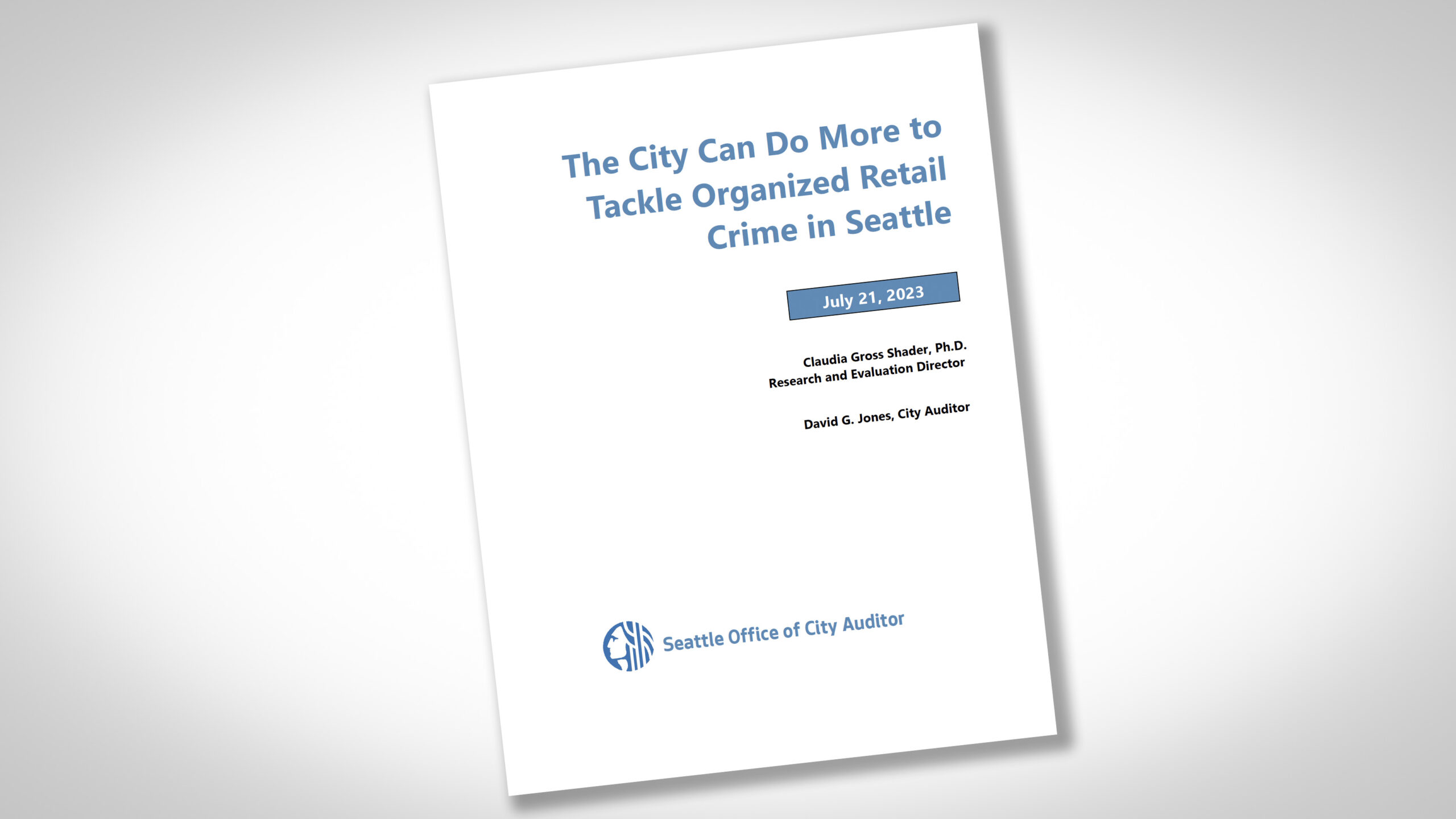
The Seattle City Council released a report last week titled “The City Can Do More to Tackle Organized Retail Crime in Seattle,” offering specific advice on tackling these complex issues.
The report provided seven crucial steps the City can implement to enhance its approach to addressing the underlying fencing operations contributing to ORC, including:
Step 1: Continue to Support City Participation in ORC Collaborations — Collaboration among law enforcement agencies, retailers, and prosecutors is essential to combat ORC effectively. To capitalize on available resources, the City should maintain its participation in collaborative efforts, such as the Washington State Attorney General’s ORC Task Force. A designated central point of contact and a shared repository for ORC information are recommended to improve coordination.
Step 2: Leverage Federal and State Crime Analysis Resources — To identify and gather evidence on fencing operations, the City should seek support from the Washington State Attorney General’s ORC Unit and Homeland Security Investigations for crime analysis assistance. Additionally, the City should explore using federal technical assistance to apply problem-oriented-policing techniques.
Step 3: Use In-Custody Interviews of Boosters to Gather Information on Fences — Conducting in-custody interviews with boosters can provide valuable information about fencing operations. Since SPD faces resource constraints, the City should explore opportunities to involve other law enforcement agencies to conduct and document booster interviews.
Step 4: Explore New Uses of Technology to Address ORC — The current Retail Theft Program is deemed inefficient, and new technology, such as rapid video response, should be considered. Collaboration with retailers and utilizing their technology investments could significantly aid ORC investigations.
Step 5: Use Place-Based Approaches to Disrupt Street Markets — Illegal street markets are hotspots for ORC fences to sell stolen goods. The City should apply its experience in community-led, place-based crime prevention to address these markets. Supporting the completion of SPD’s place-based recommendations for identified intersections is recommended.
Step 6: Follow the “Prosecution Checklist” for ORC Cases — Successful prosecution of ORC cases requires good communication between prosecutors and law enforcement. The City should ensure all necessary elements for prosecution are included in investigation reports, leading to smoother processes and better case outcomes.
Step 7: Consider City Support of Legislation Addressing ORC — Advocating for new state and federal legislation that aids ORC investigations, as well as exploring funding, technical assistance, or collaboration resulting from such legislation, will strengthen the City’s approach.
The report suggests that by implementing the seven steps and adhering to its recommendations, the City of Seattle can significantly enhance its approach to tackling Organized Retail Crime. Collaborations, technological advancements, and place-based strategies were recommended as promising opportunities to combat ORC effectively and ensure a safer retail environment for businesses and consumers.





